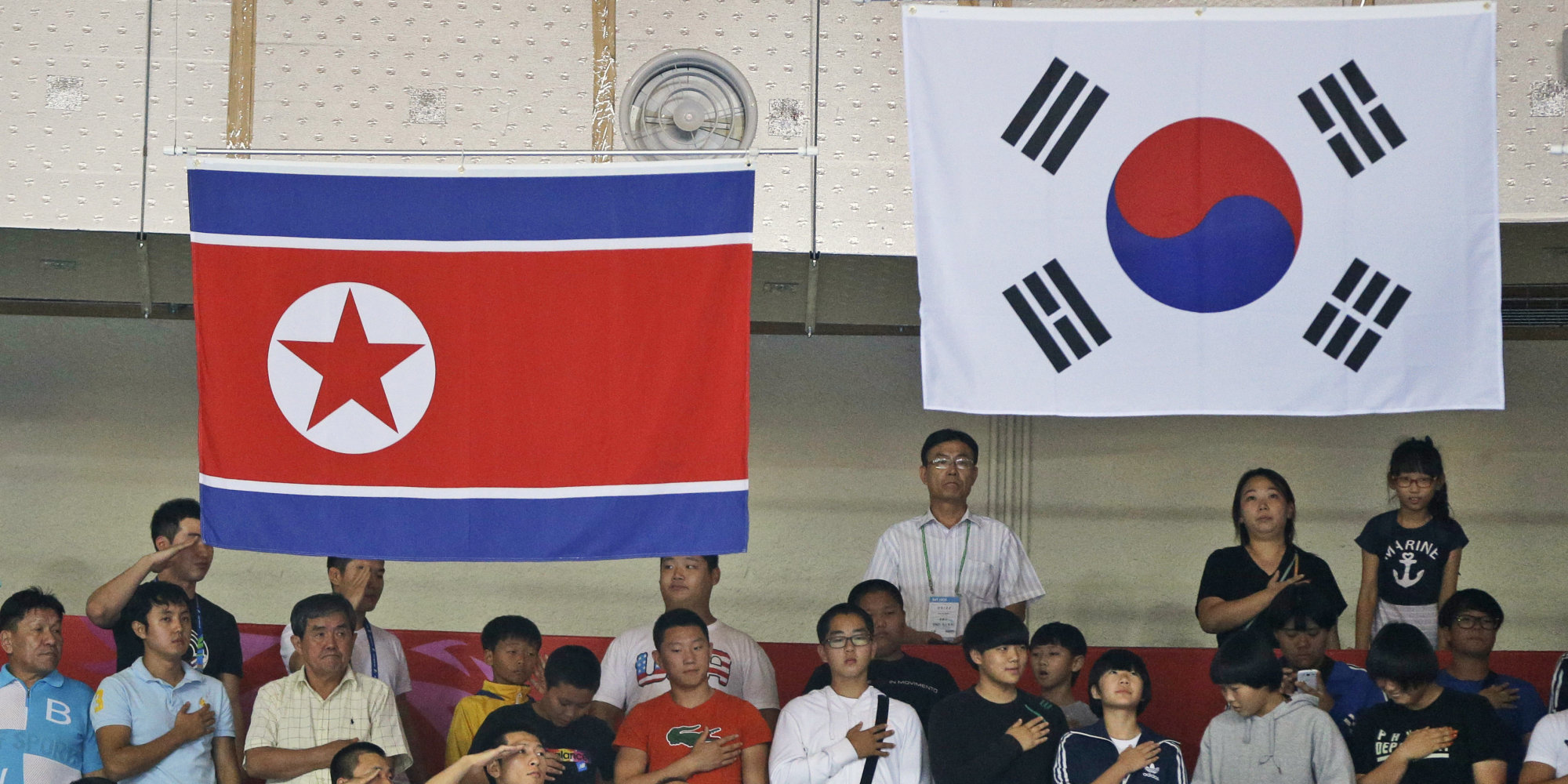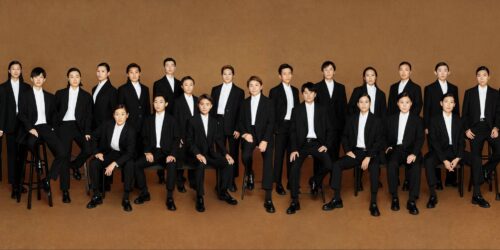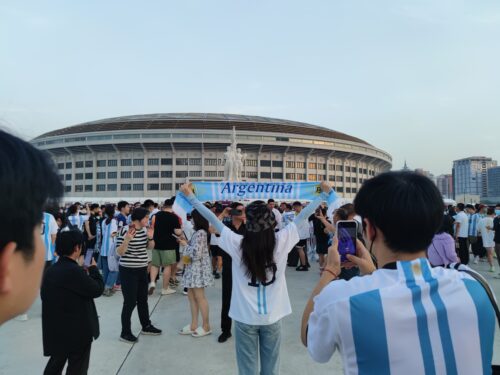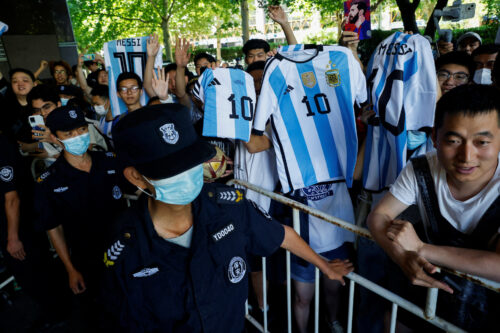China Sports Column: A pre-Olympics victory for China in Korea

The China Sports Column is The China Project‘s new weekly feature, in which China Sports Insider Mark Dreyer takes a look at the week that was in the China sports world.
China says it’s been ramping up its anti-doping efforts over the past few months in the run-up to the Olympic Games in PyeongChang, South Korea, which kick off on February 9. The China Anti-Doping Agency (CHINADA) carried out more than 17,000 tests last year and says athletes from China’s winter sports teams were collectively tested more than 400 times since September last year, of which half were in December alone. However, given that CHINADA uncovered 77 doping violations from among 132 positive tests — both figures way up from 2016 — the agency’s education program doesn’t appear to be working very well.
Last month, 2016 Youth Olympic Games speed skating 500m champion Li Yanzhe 李岩哲 was banned for four years after testing positives for steroids, while the career of China’s marathon champion and 2012 Olympian Wang Jiali 王佳丽 is now all but over after the 31-year-old received an eight-year ban for testing positive for EPO, her second doping violation. On Saturday, 21-year-old speed skater Shi Xiaoxuan石晓璇, who won gold in the 500m sprint at the Junior Speed Skating World Cup in 2016, was given a two-year ban and expelled from the team after testing positive for the anabolic agent clenbuterol.
But, remarkably, Shi was technically punished not for the doping offense — which the national speedskating team claimed arose when Shi accidentally ate contaminated food — but for “dining out without permission.” However, that’s just the tip of the iceberg: 55 Chinese athletes escaped punishment last year for testing positive for clenbuterol, using the “contaminated food” defense.
It is baffling how this flimsy argument continues to hold water. Clenbuterol has been a banned substance for years, with the World Anti-Doping Agency (WADA) specifically emphasizing the risk of contaminated food in China as far back as 2011. There’s a good story from 2013 about swimmer Sun Yang’s 孙杨 short spell in detention for driving-related offenses when he forced the entire prison block to go vegetarian for a week — prison bosses refused to treat him differently by serving him different food — so that he wouldn’t eat contaminated meat and likely test positive at his next competition. In other words, everybody in China’s sports scene knows about this. If you’re good enough to be tested, then surely you must be aware of the possibility of banned substances appearing in contaminated foods.
In the wider context, the timing of these most recent bans is also interesting, coming shortly before the Olympics. After being embarrassed during the 2016 Rio Olympics when swimmer Chen Xinyi 陈欣怡 tested positive, China isn’t afraid to kick someone off the team to prove it’s getting tougher on doping. But the fact that more people are being caught also shows that either their much-vaunted education program isn’t working or that more people are trying to cheat — or both. Given the IOC’s pathetically half-hearted response to the Russian doping scandal, countries like China are essentially being incentivized to dope, as I argued in an earlier piece. With the 2022 Winter Games in Beijing fast approaching, China has a big decision to make about just how serious it intends to take this issue.
~
Speaking of the Olympics, it seems China has played a key role in bringing the North Koreans to PyeongChang. The JoongAng Daily reported that ministers from both sides of the Korean divide met in Kunming in mid-December on the sidelines of an international football tournament, while North Korea’s IOC member told reporters in Beijing last weekend that the North was “likely to participate” at PyeongChang. All of this can be chalked up as a big win for China. Seoul spends much of its diplomatic energies trying to keep both Beijing and Washington happy, but with an invitation to the Olympics bringing North Korea in from the cold — at least for a while — there’s no doubt that the feel-good factor temporarily relieves the international pressure on Pyongyang that the U.S. has been so keen to create. Whether this has any effect on the ongoing nuclear situation remains to be seen, but China’s engagement tactic has clearly trumped Washington’s isolation strategy.
However, if, as now seems certain, the North does take part, the question remains as to who exactly would go. Only two figure skaters have qualified, but have long missed the deadline to register. If they and others are granted late wild-card places, don’t expect stellar performances: The North has only won two medals in its Winter Olympic history — a speed skating silver from 1964 in the women’s 3,000m and a short-track bronze from 1992 in the women’s 500m.
But in an intriguing development this week, which could have far-reaching consequences for the eventual reunification of the Korean Peninsula, the IOC will discuss on January 20 the possibility of allowing between three and eight North Korean women to join the South Korean ice hockey team, which, like the men’s side, has also recruited players from outside South Korea in an effort to make the squad more competitive — a tactic China is also considering ahead of 2022.
- Related reading — Canadian filmmakers get a view of North Korea through hockey.
Shanghai Shenhua parts ways with overpaid superstar Carlos Tevez

It’s moving time in the Chinese Super League (CSL), with Shanghai Shenhua prematurely ending the Carlos Tevez experiment — to no one’s surprise. In fact, the only surprise is the fact that the 33-year-old, who looked unfit and uninterested while scoring just four goals last season (and reportedly making more money in the CSL than anyone ever has), now apparently thinks he has a chance of lining up alongside the likes of Lionel Messi for Argentina at this year’s World Cup.
But while the Tevez headlines have unfortunately reinforced the view that the CSL is where old players go to die (and get rich), others have shown that this is not always the case. Paulinho arrived at Guangzhou Evergrande after a disappointing spell at Spurs, but has most definitely revived his career. With two CSL titles under his belt, he joined Barcelona in August, where he has been one of the team’s best players this season. The Brazilian is also scoring for his national team and, unlike Tevez, should be one to watch in Russia this summer. More recently, Roger Martinez, who scored 17 goals in 30 CSL games for Jiangsu Suning, has just moved to Villareal, currently sixth in Spain’s La Liga. He looks set to replace Cedric Bakambu, who is finalizing a deal to move to Beijing Guoan for a massive €75 million ($90 million), roughly half of which will go straight to the China Football Association to fund grassroots initiatives following the transfer tax that was introduced last year.
Also this week:
- Southampton FC’s chairman outlines the plans of the club’s Chinese owner Gao Jisheng, churning out a whole load of waffle that will do nothing to reassure increasingly impatient fans.
- In a marketing move that was nothing short of genius, the NBA’s Dallas Mavericks have revealed the team’s new Chinese name. Expect other clubs to follow suit in the months ahead.
- Hong Kong soccer fans are in for a treat with HK Premier League side Kitchee signing former World Cup Golden Ball winner Diego Forlan.
- With NHL stars forbidden by the league to play at this year’s Olympics, the head of the sport’s governing body has told players to be more vocal if they want to play in Beijing four years from now.
- China got off to a good start with a 3-0 win over Oman in the U23 AFC Championship and the hosts now face Uzbekistan on Friday afternoon in Changzhou.
- Perennial CSL champions Guangzhou Evergrande again said this week that the club plans to field an all-Chinese team by 2020, but the SCMP makes the case to instead allow more foreign players in the league.
The China Sports Column runs every Friday on The China Project. Follow Mark Dreyer @DreyerChina.





